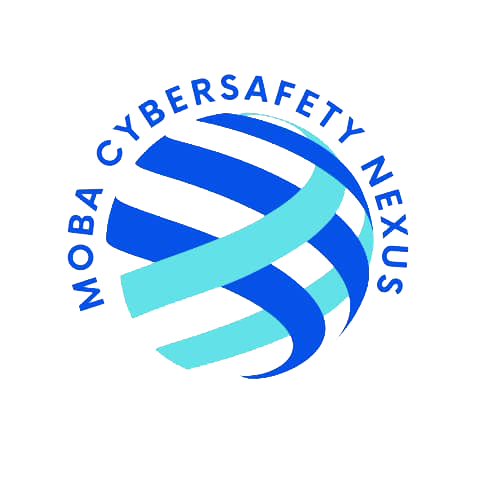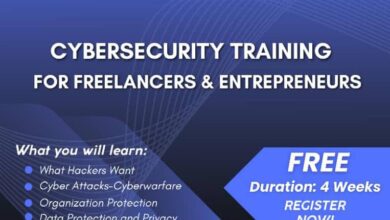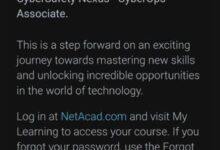The Hack That Almost Tore Them Apart—This Could Be You!

Amaka’s life was picture-perfect—she was the successful social media manager for the multinational corporation, Global Trends Corp, and her relationship with Ebuka was the definition of love and support. They had a shared vision for the future, and their romance was one of late-night chats, surprise dates, and dreams built on trust. But in a world where trust is everything, Amaka was about to face a challenge she never saw coming. One that would shake not only her career but also her love life.It started innocently enough—a quick login to her social media account to update a client’s campaign while she and Ebuka were planning their evening together. But moments later, her screen froze, and she was locked out. Panic set in as her phone buzzed with messages—her account had been hacked. Everything she had built for her clients was being deleted, her personal emails were compromised, and her career was on the line.But the worst part? Ebuka seemed distant, almost distracted, when she needed him most. Was it because her digital blunder had compromised his accounts too? Had this security nightmare become a test of their love?
The Myths That Almost Ruined Everything
Amaka was a bright, tech-savvy professional, but like many of us, she had fallen for common cybersecurity myths that left her and her organization vulnerable.
Myth 1: “Cybersecurity Is Only for Tech Experts”
Amaka had always relied on her company’s IT department to handle security. She thought cybersecurity was a complicated field, meant for tech experts, and didn’t see herself as part of the defense. But when her personal social media accounts were compromised, it became clear that security was everyone’s responsibility, not just the IT team’s.
Reality: Cybersecurity is for everyone, not just IT professionals. From the way you handle emails to how you create passwords, every action counts.
Tip: Be proactive in understanding basic cybersecurity practices. Regularly update your passwords, avoid clicking suspicious links, and enable two-factor authentication (2FA) on all accounts.
Myth 2: “I Don’t Have Anything Worth Hacking”
Amaka never thought she was a target. She figured hackers would go after larger companies or high-profile individuals—not a social media manager managing campaigns for clients. But in reality, her access to sensitive information made her a prime target.
Reality: Everyone is a target. Whether it’s personal data, professional credentials, or access to a larger network, hackers can find value in every individual’s digital life.
Tip: Protect all accounts with strong, unique passwords, and use password managers to keep track. Your personal information is as valuable to hackers as a company’s sensitive data.
Myth 3: “Antivirus Software Alone Will Keep Me Safe”
After the hack, Amaka thought back to her reliance on antivirus software, trusting it would protect her from every digital threat. But antivirus software alone isn’t enough. Hackers are constantly evolving, and new threats bypass traditional protection methods every day.
Reality: Antivirus software is important but only one layer of security. Real protection requires a combination of tools and habits, such as regular software updates, password management, and cautious online behavior.
Tip: Use antivirus software, but also enable firewalls, keep software updated, and stay educated on the latest cyber threats to reduce risk.
Myth 4: “Cyber Threats Come Exclusively from Outside the Organization”
Amaka’s biggest surprise was learning that the breach wasn’t caused by an outside hacker, but an insider—someone within her own organization who had weak security practices. It was a wake-up call that threats can come from anyone, not just external attackers.
Reality: Internal threats—whether intentional or not—pose a serious risk. Employees with poor cybersecurity habits or malicious intent can create vulnerabilities.
Tip: Organizations need to provide continuous training on cybersecurity best practices for all employees, not just IT staff. Regularly audit access levels and reinforce the importance of strong password hygiene and data privacy.
The Sweet Ending
Love Conquers All After a long, sleepless night of working with the IT team to recover her accounts and repair the damage, Amaka felt defeated. But just as she was about to lose hope, there was a knock on her door. It was Ebuka, standing there with his laptop in hand. He had been working tirelessly to fix the breach, and together, they found a way to secure their accounts, recover her data, and move forward.In the end, this crisis made them stronger. They realized that cybersecurity wasn’t just about protecting data—it was about protecting their lives, their future, and their love. Trust, after all, is the foundation of every relationship—both in love and in the digital world.
Grab your copy of Encrypted Heart now on Selar here: https://selar.co/y2x128 and dive deeper into the intertwined world of romance and cybersecurity, where love and trust are tested not just by emotions, but by the digital dangers that lurk in our hyper-connected world.
Cybersecurity myths can be dangerous. Don’t fall victim to them—stay informed, stay vigilant, and protect what matters most.
How are you ensuring the safety of your online world today? Share your thoughts in the comments and let’s keep each other safe!

























